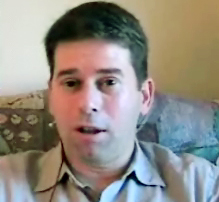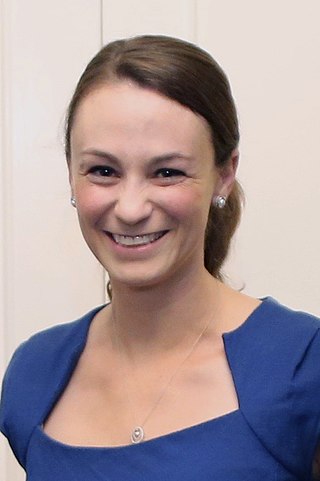Related Research Articles
Regime change is the partly forcible or coercive replacement of one government regime with another. Regime change may replace all or part of the state's most critical leadership system, administrative apparatus, or bureaucracy. Regime change may occur through domestic processes, such as revolution, coup, or reconstruction of government following state failure or civil war. It can also be imposed on a country by foreign actors through invasion, overt or covert interventions, or coercive diplomacy. Regime change may entail the construction of new institutions, the restoration of old institutions, and the promotion of new ideologies.

Deterrence theory refers to the scholarship and practice of how threats or limited force by one party can convince another party to refrain from initiating some other course of action. The topic gained increased prominence as a military strategy during the Cold War with regard to the use of nuclear weapons and is related to but distinct from the concept of mutual assured destruction, according to which a full-scale nuclear attack on a power with second-strike capability would devastate both parties. The central problem of deterrence revolves around how to credibly threaten military action or nuclear punishment on the adversary despite its costs to the deterrer. Deterrence is one strategy to achieve peace and avoid conflict escalation in peace and conflict studies.

William Eldridge Odom was a United States Army lieutenant general who served as Director of the National Security Agency under President Ronald Reagan, which culminated a 31-year career in military intelligence, mainly specializing in matters relating to the Soviet Union. After his retirement from the military, he became a think tank policy expert and a university professor and became known for his outspoken criticism of the Iraq War and warrantless wiretapping of American citizens. He died of an apparent heart attack at his vacation home in Lincoln, Vermont.

Robert Jervis was an American political scientist who was the Adlai E. Stevenson Professor of International Politics in the Department of Political Science at Columbia University. Jervis was co-editor of the Cornell Studies in Security Affairs, a series published by Cornell University Press.

David M. Lampton is the George and Sadie Hyman Professor and Director of China Studies Emeritus at the Johns Hopkins University's Paul H. Nitze School of Advanced International Studies (SAIS) and former Chairman of The Asia Foundation.

Shibley Telhami is an American professor in the department of government and politics at the University of Maryland, College Park, and a nonresident senior fellow of the Center for Middle East Policy at the Brookings Institution.

David J. Rothkopf is an American foreign policy, national security and political affairs analyst and commentator. He is the founder and CEO of TRG Media and The Rothkopf Group, a columnist for The Daily Beast and a member of the USA Today Board of Contributors. He is the author of ten books including Running the World: The Inside Story of the National Security Council and the Architects of American Power, National Insecurity: American Leadership in an Age of Fear, and most recently, Traitor: A History of American Betrayal from Benedict Arnold to Donald Trump. He is also the podcast host of Deep State Radio. Rothkopf also serves as a registered foreign agent of the United Arab Emirates.

Gilford John Ikenberry is a theorist of international relations and United States foreign policy, and the Albert G. Milbank Professor of Politics and International Affairs at Princeton University. He is known for his work on liberal International Relations theory, such as the books After Victory (2001) and Liberal Leviathan (2011). He has been described as "the world's leading scholar of the liberal international order."

Victor D. Cha is an American political scientist.

Daniel W. Drezner is an American political scientist. He is known for his scholarship and commentary on International Relations and International Political Economy.
John Milton Cooper Jr. is an American historian, author, and educator. He specializes in late 19th and early 20th-century American political and diplomatic history with a particular focus on presidential history. His 2009 biography of Woodrow Wilson was a finalist for the Pulitzer Prize, and biographer Patricia O'Toole has called him "the world's greatest authority on Woodrow Wilson." Cooper is Professor Emeritus at the University of Wisconsin-Madison.

Fredrik Logevall is a Swedish-American historian and educator at Harvard University, where he is the Laurence D. Belfer Professor of International Affairs at the John F. Kennedy School of Government and professor of history in the Harvard Faculty of Arts and Sciences. He is a specialist in U.S. politics and foreign policy. Logevall was previously the Stephen and Madeline Anbinder Professor of History at Cornell University, where he also served as vice provost and as director of the Mario Einaudi Center for International Studies. He won the 2013 Pulitzer Prize for History for his book Embers of War: The Fall of an Empire and the Making of America’s Vietnam. His most recent book, JFK: Coming of Age in the American Century, 1917-1956 (2020), won the Elizabeth Longford Prize for Historical Biography and was a New York Times Notable Book of the Year.
Kimberly Marten is an author and scholar specializing in international security, foreign policy, Russia, and environmental politics. She held the 5-year-term Ann Whitney Olin Professorship of Political Science at Barnard College from 2013 to 2018, and then returned to chair the Barnard Political Science Department for a second time from 2018-2021. She was the director of the Program on U.S.-Russia Relations at Columbia University’s Harriman Institute from 2015 to 2019, and the Harriman Institute published a profile of her career. She is a member of the Council on Foreign Relations and the International Institute for Strategic Studies, and a frequent media commentator.

Michael Steven Fish is a professor of political science at the University of California, Berkeley. His research interests include democracy, authoritarianism, postcommunist countries, legislatures and constitutional systems, economic reform, and religion and politics.

Sheena Elise Chestnut Greitens is an American political scientist currently serving as an associate professor in the Lyndon B. Johnson School of Public Affairs at the University of Texas at Austin. She was First Lady of Missouri from 2017 to 2018.
Stacie E. Goddard is an American political scientist. She is the Mildred Lane Kemper Professor of Political Science at Wellesley College. Goddard is known for her research on international order, grand strategy, and global power politics. Goddard formerly served as the Faculty Director of the Madeleine Korbel Albright Institute for Global Affairs and is a non-resident fellow of the Quincy Institute.
Jessica L.P. Weeks is an American political scientist. She is Professor and H. Douglas Weaver Chair in Diplomacy and International Relations in the Department of Political Science at the University of Wisconsin-Madison.
Seva Gunitsky is an American political scientist. He is an associate professor of political science at the University of Toronto. His research focuses on the ways global forces and international politics affect democracy and domestic politics. He is the author of Aftershocks: Great Powers and Domestic Reforms in the Twentieth Century, which examines how shocks in the international system affect regime types. The book was selected by Foreign Affairs magazine as one of the best books of 2017. He has also published commentary and analysis in The Washington Post, Foreign Affairs, and The New Republic. Gunitsky is a frequent commentator on Russian politics and foreign policy.

Thomas J. Christensen is an American political scientist. He is the James T. Shotwell Professor of International Relations at the School of International and Public Affairs, Columbia University.

Elizabeth C. Economy is an American scholar, foreign policy analyst, and expert on China's politics and foreign policy. She is Senior Advisor for China to the Secretary of Commerce in the Biden administration and Senior Fellow at the Hoover Institution at Stanford University.
References
- ↑ "Elizabeth N. Saunders". Elizabeth N. Saunders. Retrieved 2021-01-07.
- ↑ "Elizabeth N. Saunders". Brookings. Retrieved 2024-04-07.
- ↑ Quealy, Kevin (2017-05-14). "If Americans Can Find North Korea on a Map, They're More Likely to Prefer Diplomacy (Published 2017)". The New York Times. ISSN 0362-4331 . Retrieved 2021-01-07.
- ↑ "H-Diplo Article Review 628 on "War and the Inner Circle: Democratic Elites and the Politics of Using Force." Security Studies 24:3 | H-Diplo | H-Net". networks.h-net.org. Retrieved 2021-01-07.
- ↑ H-Diplo (2012-02-15). "Roundtable 3-8 on Leaders at War: How Presidents Shape Military Interventions". H-Diplo | ISSF. Retrieved 2021-01-07.
- ↑ Ricks, Thomas E. "Political science books that military historians might benefit from reading". Foreign Policy. Retrieved 2021-01-07.
- ↑ Drezner, Daniel (2020). "The best work on political economy in 2020". The Washington Post.
- ↑ "Elizabeth N. Saunders | Political Science". polisci.columbia.edu. Retrieved 2024-04-07.
- ↑ "Elizabeth N. Saunders". Elizabeth N. Saunders. Retrieved 2024-04-07.
- ↑ Saunders, Elizabeth N. (2024). The insiders' game: how elites make war and peace. Princeton studies in international history and politics. Princeton, New Jersey: Princeton University Press. ISBN 978-0-691-21581-5.
- ↑ Saunders, Elizabeth N. (2011-02-03). Leaders at War. Cornell University Press. ISBN 978-0-8014-4922-2.
- ↑ Saunders, Elizabeth N. (2024-02-20). "Politics Can't Stop at the Water's Edge". Foreign Affairs. Vol. 103, no. 2. ISSN 0015-7120 . Retrieved 2024-04-07.
- ↑ Saunders, Elizabeth N. (2022-12-30). "Analysis | Leaders around the world made bold moves in 2022. They didn't always succeed". Washington Post. ISSN 0190-8286 . Retrieved 2024-04-07.